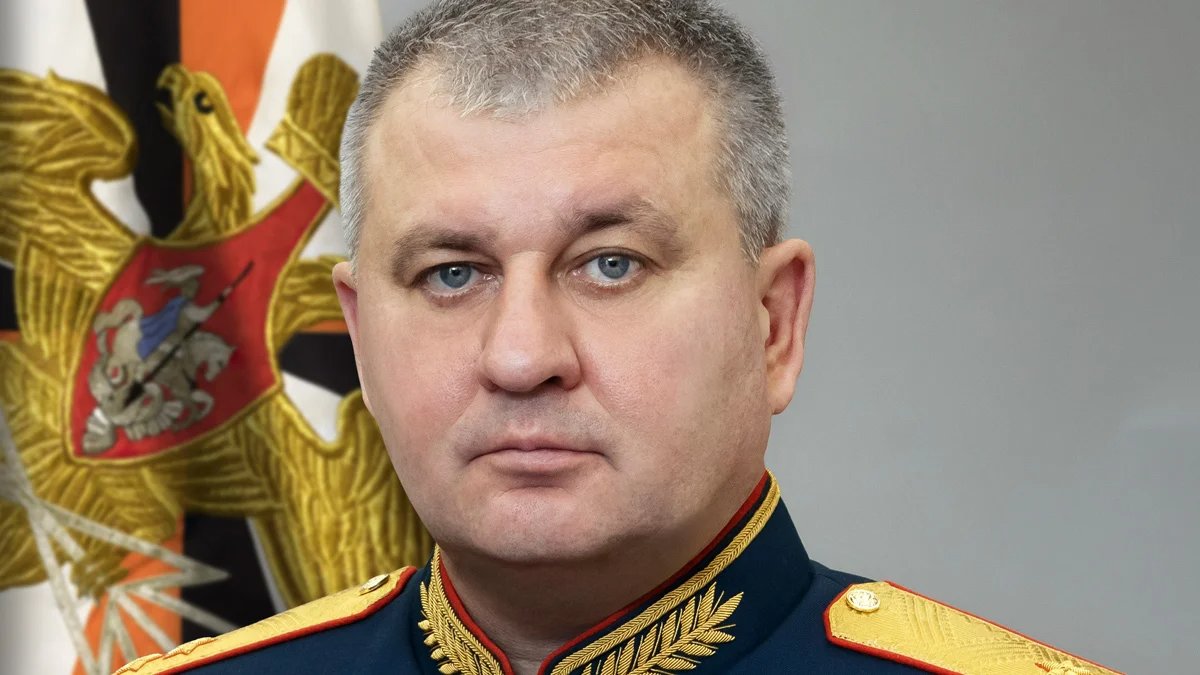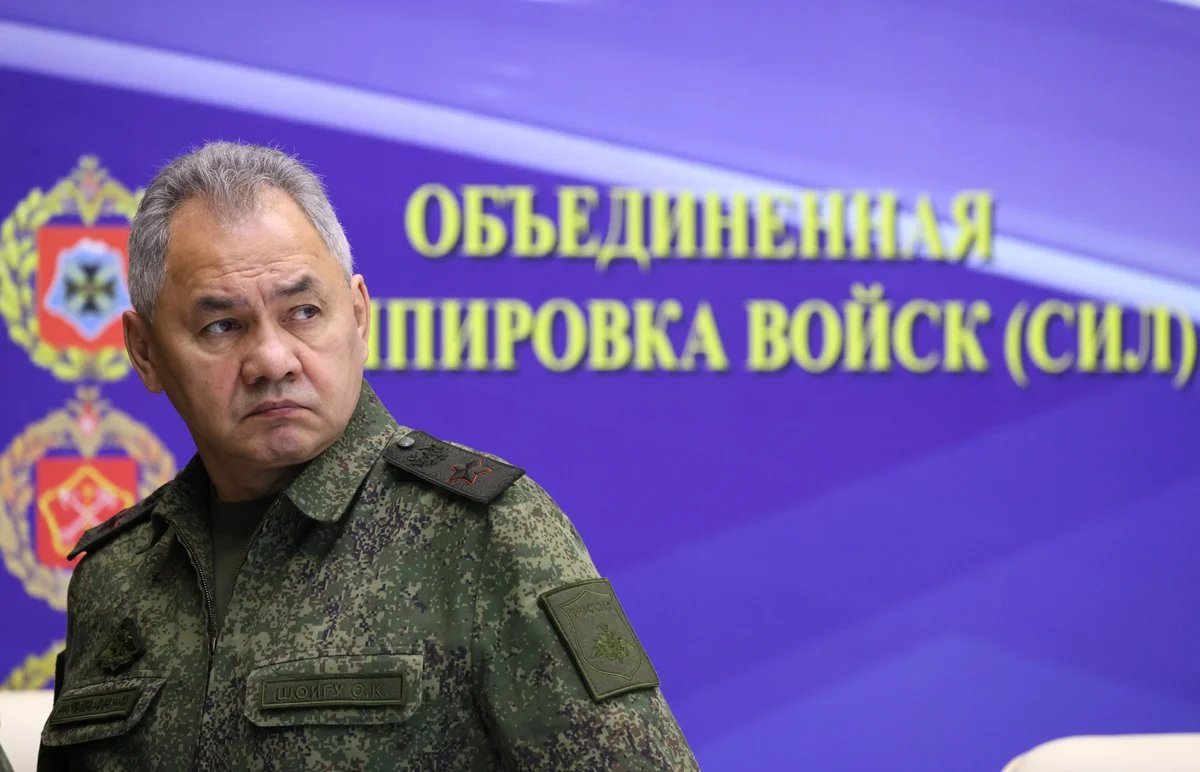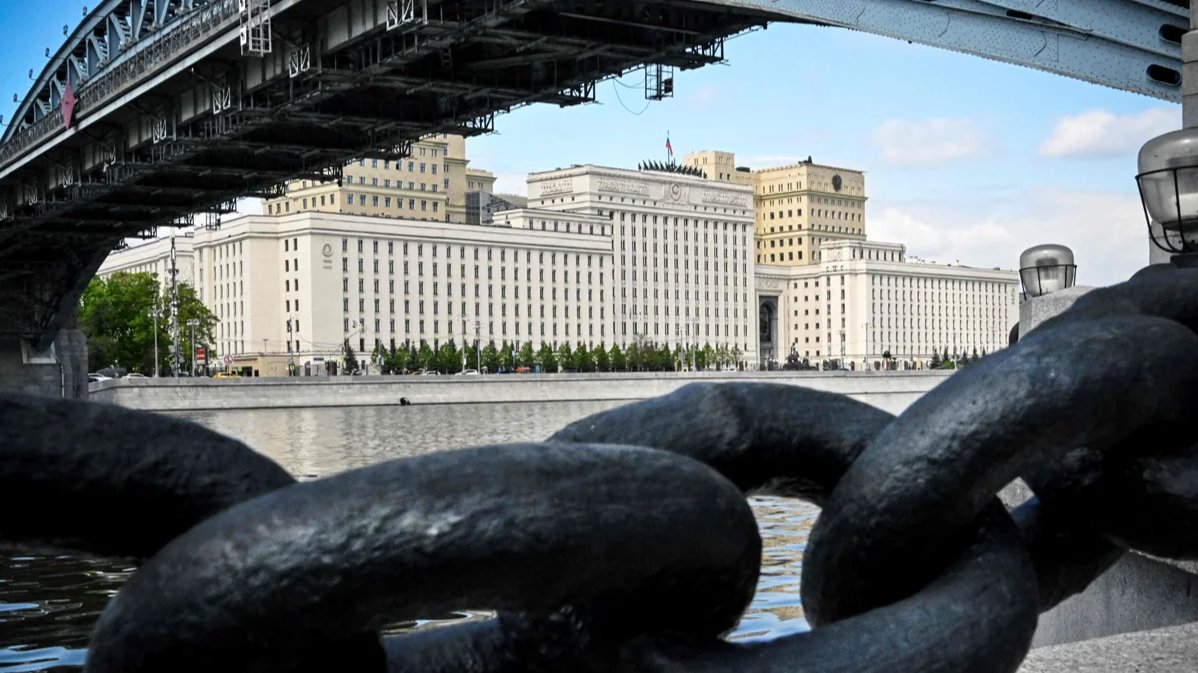A wave of purges has overtaken the Russian Defence Ministry since the sudden replacement of longtime Defence Minister Sergey Shoigu with Andrey Belousov on 12 May.
On Thursday the arrests were announced of Vadim Shamarin, the deputy chief of the General Staff of the Armed Forces and Vladimir Verteletsky, a senior procurement officer at the ministry.
Shamarin was arrested on suspicion of having accepted bribes over a period of seven years worth 36 million rubles (€370,000) from the management of a telephone factory, whereas Verteletsky was arrested for allegedly accepting contracted work that was incomplete, costing the Russian military over 70 million rubles (€720,000).
Shamarin and Verteletsky’s are the latest in a series of arrests that has also included Deputy Defence Minister Timur Ivanov, Yury Kuznetsov, the chief of the Russian Defence Ministry’s Main Personnel Directorate, and General Ivan Popov, on bribery, trading state secrets and fraud charges respectively. If found guilty, each of them could face up to 15 years in prison.
Military expert Yury Fyodorov told Novaya Europe that the slew of arrests most likely stemmed from a “confrontation between clans and factions within the ministry”, adding that the infighting was only being portrayed as a fight against corruption to the public, while in fact all signs point towards a “power struggle” between law enforcement agencies, particularly the Defence Ministry and the state security agencies.
If found guilty, each of them could face up to 15 years in prison.
“It’s fair to say that what’s ultimately at stake is having a role in choosing Russia’s next leader,” Fyodorov continued. “One way or another, Putin will have to begin grooming a successor as head of state in the near future, and the security services are determined to be involved in overseeing the impending power transfer. Even if, for now, that simply means having Putin’s ear.”
Anti-Corruption Foundation military expert Yan Matveyev agreed that the arrests were not really about fighting corruption, but were instead about “eliminating” former Defence Minister Sergey Shoigu’s allies. “The Russian army has long been in need of high-ranking scapegoats,” he said. “Now they’ve found them.”

Vadim Shamarin. Photo: Defence Ministry press service / AP / Scanpix / LETA
Pro-Putin military correspondents responded especially enthusiastically to Shamarin’s arrest, according to military researcher Kirill Mikhailov, as Shamarin was in charge of the Russian army’s communications, which he termed the “scourge of the Russian army since the very beginning of the full-scale invasion”. Mikhailov said that although problems with communications might not have seemed the most glaring problem in the Russian military apparatus, weak communications systems seriously threatened the efficiency of the entire army as they impeded the work of various units and types of troops. He added that communication remained an “unsolved problem” for the Russian army even heading into the third year of the war.
Fyodorov noted also that Shamarin’s position at the top of the military’s communication network would have positioned him to receive a large number of bribes from companies eager to conclude procurement contracts with the Russian military.
An FSB officer told Novaya Europe that Verteletsky accepted bribes by allowing manufacturing firms that were “friendly” with various generals to bypass open tendering processes to secure huge contracts with no competition. He also alleged that Verteletsky had used his position to generate entirely fictional demands for certain products that the army didn’t need, the officer said.
Pro-Putin military correspondents responded especially enthusiastically to Shamarin’s arrest
Rank-and-file Russian troops themselves have generally welcomed the news of these high-profile arrests. A serving mid-level Russian army officer said that soldiers often grumbled about the ill-gotten wealth of their generals, while another Russian serviceman said that the arrested higher-ups should be “shot on Red Square” to serve as an “example to others”.
The officer defended Popov, whom he said lost favour with his superiors for being too “honest and direct” — an idea Fyodorov seemed to confirm, suggesting that Chief of the General Staff Valery Gerasimov may have sought personal revenge on Popov after he attempted to go over his head to warn Putin about the Russian military’s problems.

Sergey Shoigu. Photo: Gavriil Grigorov / Sputnik / Kremlin / EPA-EFE
The officer said that the arrested members of the military top brass had “profited from the war” and were guilty of many other transgressions than those for which they were now having to answer. He also said that ordinary soldiers had been well aware of “shady business” in the communications sector long before Shamarin’s arrest: although newspapers claimed that the entire Russian army had been equipped with state-of-the art communications equipment, “in reality entire regiments fought without any radios at all”, or with walkie-talkies purchased for them by Russian humanitarian organisations.
Shamarin’s arrest would almost certainly have been personally approved by Putin, Fyodorov said, adding that he expected more criminal cases against high-ranking Defence Ministry officials to come to light in the weeks ahead as those who have already been arrested “cooperate with the investigation” by implicating their own colleagues and subordinates.
“Almost all high-ranking Defence Ministry employees either took part in corrupt schemes or were aware of them,” Fyodorov told Novaya Europe. Another Defence Ministry source added that the central apparatus of the ministry was always aware “who takes bribes, for what, and on what scale” and that the scale of Ivanov and Kuznetsov’s graft was widely known before they were suddenly arrested.
In terms of the effects these sweeping purges might have on the Russian military, Fyodorov said that units whose commanders were imprisoned would certainly find their operations disrupted, also predicting that Shamarin’s arrest would only worsen the already significant problems faced by the military’s communications networks.
Matveyev agreed that the personnel changes were only likely to have adverse effects in the short term. “The bureaucratic machine will stall and decisions will take even longer to make,” he said.
Mikhailov, for his part, said he thought more arrests would be necessary to truly reform the army. In his view, the top brass would now have to look at ways to break the tradition of falsely submitting positive reports about non-existent successes, which have been accepted practice in the Russian army for a long time. None of the newly appointed military commanders or Defence Ministry officials has yet made a serious effort to solve the problem, he added. The Russian military faced such long-standing and systemic problems, he said, that even the most upstanding and honest military leaders would need considerable time to solve them.
Join us in rebuilding Novaya Gazeta Europe
The Russian government has banned independent media. We were forced to leave our country in order to keep doing our job, telling our readers about what is going on Russia, Ukraine and Europe.
We will continue fighting against warfare and dictatorship. We believe that freedom of speech is the most efficient antidote against tyranny. Support us financially to help us fight for peace and freedom.
By clicking the Support button, you agree to the processing of your personal data.
To cancel a regular donation, please write to [email protected]

